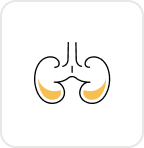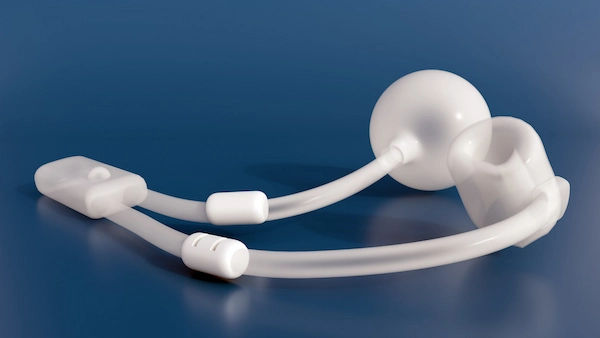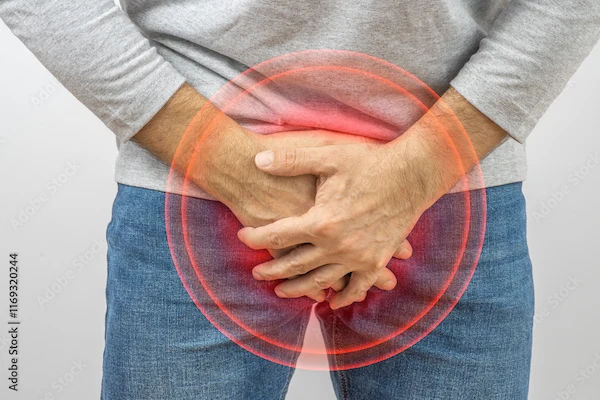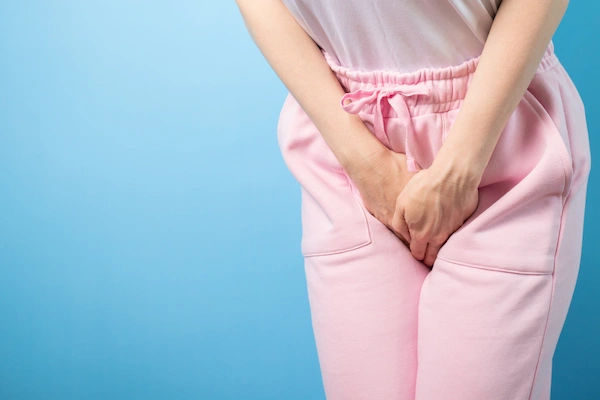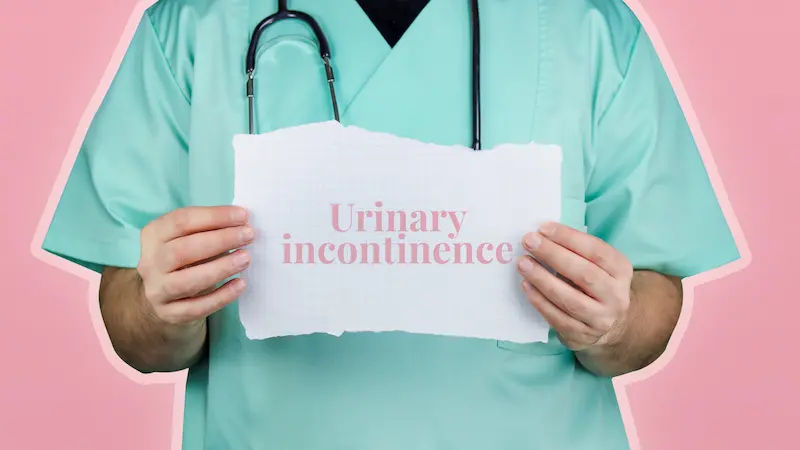Urinary Incontinence: Types, Causes, and Treatments
Learn about urinary incontinence, its different types, common causes, and available treatments to manage symptoms effectively.

Written by Dr. J T Hema Pratima
Reviewed by Dr. D Bhanu Prakash MBBS, AFIH, Advanced certificate in critical care medicine, Fellowship in critical care medicine
Last updated on 13th Jan, 2026

Introduction
That sudden, embarrassing leak when you laugh, cough, or sprint to the bathroom: urinary incontinence is a frustrating and often isolating experience. But here’s the most important thing to know: you are not alone, and it is not an inevitable sign of aging. Leakage of urine, or urinary incontinence, is a common medical condition affecting millions of people worldwide, regardless of age or gender. It’s a treatable problem, not a life sentence. This comprehensive guide will walk you through everything you need to know, from identifying the different types of incontinence to exploring the wide range of effective treatments available. We’ll demystify the causes, discuss practical management strategies you can start today, and guide you on when to seek professional help to reclaim your confidence and comfort.
What Exactly is Urinary Incontinence?
Urinary incontinence is the involuntary loss of bladder control, leading to an unexpected leakage of urine. It can range in severity from occasionally leaking a few drops when you cough or sneeze to having a sudden, intense urge to urinate that you can't control, resulting in a complete emptying of your bladder.
It's More Common Than You Think
Despite the silence surrounding it, incontinence is incredibly prevalent. It affects an estimated 25 million adults in the U.S. alone, with women being twice as likely as men to experience it, often due to pregnancy, childbirth, and menopause. However, men are certainly not immune, especially those who have had prostate surgery. Acknowledging its prevalence is the first step in reducing the stigma and encouraging people to seek help.
Consult a Urologist for the best advice
The Different Types of Urinary Incontinence
Understanding the type of incontinence you have is crucial for effective treatment. The symptoms and causes can vary significantly.
Stress Incontinence
This is one of the most common types. It occurs when physical pressure (stress) on the bladder causes leakage. It is not emotional stress. The underlying issue is weakened pelvic floor muscles or a weakened urethral sphincter.
Examples: Leaking urine when you cough, sneeze, laugh, exercise, lift something heavy, or even stand up.
Common in: Women post-childbirth and after menopause; men after prostate surgery.
Urge Incontinence (Overactive Bladder)
This type is characterised by a sudden, intense urge to urinate, followed by an involuntary loss of urine. You may need to urinate frequently, including throughout the night. It's often linked to an overactive bladder (OAB) where the bladder muscles contract involuntarily.
Example: Getting the urge to go and not being able to make it to the bathroom in time, or leaking on the way.
Overflow Incontinence
This happens when the bladder doesn't empty completely, causing it to overflow and leak small amounts of urine frequently. You may feel like you can’t ever fully empty your bladder.
Common causes: A blockage in the urinary tract, nerve damage from diabetes, or an enlarged prostate in men.
Functional Incontinence
Here, the urinary system works normally, but a physical or mental impairment prevents you from reaching the toilet in time.
Example: A person with severe arthritis who cannot unbutton their pants quickly enough, or someone with dementia who doesn't recognise the need to urinate.
Mixed Incontinence
This is a combination of symptoms, most typically stress and urge incontinence occurring together.
Common Causes and Risk Factors
Several medical conditions, lifestyle factors, and age-related changes can contribute to urinary incontinence.
Lifestyle and Temporary Factors
Certain foods, drinks, and habits can act as diuretics or irritate your bladder, leading to temporary incontinence.
Alcohol and Caffeine: Both are diuretics and bladder irritants.
Carbonated Drinks, Artificial Sweeteners, Spicy/Sugary Foods: Can irritate the bladder.
Constipation: The rectum is near the bladder and can put pressure on it.
Urinary Tract Infections (UTIs): Can irritate the bladder, causing strong urges and incontinence.
Underlying Medical Conditions
Persistent incontinence is often linked to more physical changes or underlying conditions.
Pregnancy & Childbirth: Can stretch and weaken pelvic floor muscles.
Menopause: Declining estrogen can deteriorate the urethral lining.
Enlarged Prostate (BPH): A common cause in older men.
Prostate Cancer: Surgery or treatment can damage nerves and sphincters.
Neurological Disorders: Parkinson's, MS, stroke, or a spinal injury can disrupt nerve signals involved in bladder control.
Diagnosis: How is Urinary Incontinence Identified?
If your condition does not improve after trying simple lifestyle changes, it’s time to seek a professional diagnosis.
The Doctor's Visit: What to Expect
Your doctor will start with a detailed medical history and a physical exam, which for women may include a pelvic exam, and for men, a prostate exam. They will ask about your symptoms, patterns, and habits. Be prepared to answer questions about how often you leak and what triggers it.
The Bladder Diary and Other Tests
A powerful diagnostic tool is a bladder diary. You’ll be asked to record for several days:
How much fluid you drink
How often you urinate
The amount of urine you pass
How many episodes of incontinence you have
How many times you feel an urgent need to go
Additional tests may include a urine analysis to check for infection, a blood test to check kidney function, and more specialised urodynamic tests to measure pressure and flow in your bladder.
Get Your Health Assessed
Effective Treatment and Management Strategies
The good news is that a wide spectrum of treatments exists, from simple exercises to surgical procedures.
Lifestyle Modifications and Bladder Training
This is often the first line of defense.
Bladder Training: Gradually increasing the intervals between using the toilet over weeks to train your bladder to hold urine longer.
Scheduled Toilet Trips: Planning to urinate every 2-4 hours instead of waiting for the urge.
Fluid Management: Drinking the right amount (not too much, not too little) and avoiding irritants like caffeine.
The Power of Pelvic Floor Exercises (Kegels)
Kegel exercises strengthen the pelvic floor muscles that support the bladder and urethra, providing better control. They are highly effective for stress incontinence and can help with urge incontinence.
How to: Identify the right muscles by trying to stop your urine flow midstream (only do this once to identify them, not as a regular exercise). Tighten these muscles, hold for 3-5 seconds, then relax for 5 seconds. Repeat 10-15 times per session, aiming for at least 3 sessions a day. Consistency is key.
Medications and Medical Devices
Several medications can help calm an overactive bladder or relax prostate muscles. For women, a pessary, a flexible ring inserted into the vagina, can help support the bladder neck and prevent leakage.
Surgical Options
For cases that don't respond to other treatments, surgery can be an option. Procedures include slings to support the urethra, procedures to elevate a dropped bladder, or even artificial sphincters.
Living with Incontinence: Tips and Products
While seeking treatment, managing symptoms can greatly improve quality of life.
Protective Products and Clothing
A variety of discreet and highly absorbent products are available, from pads and protective underwear to adult diapers. Wearing dark-coloured, loose-fitting clothing can also help conceal any accidents.
Diet and Hydration Tips
Do: Drink plenty of water throughout the day. Dehydration concentrates urine, irritating the bladder.
Avoid: Known irritants like caffeine, alcohol, acidic foods (tomatoes, citrus), and spicy foods.
Conclusion
Experiencing a leakage of urine can feel discouraging, but it's crucial to remember that it is a medical condition with solutions. From simple daily exercises for bladder control like Kegels to advanced medical interventions, the path to management and recovery is well-established. Ignoring the problem often leads to unnecessary anxiety and a reduced quality of life. By understanding the causes, implementing lifestyle strategies, and most importantly, seeking professional guidance, you can take back control. If you’ve been struggling with symptoms, the best next step is to have an open conversation with a doctor. You deserve to live with confidence and comfort.
Consult a Urologist for the best advice
Consult a Urologist for the best advice
Dr S K Singhanina
Urologist
25 Years • MBBS/MS/DNB AND MCH UROLOGY
Guwahati
Apollo Clinic Guwahati, Assam, Guwahati

Dr. Pavan Kumar S K
Urologist
11 Years • MBBS, MS , Mch( Urology) DNB (Urology)
Bengaluru
Apollo Clinic, JP nagar, Bengaluru

Dr. Ramesh H
Urologist
16 Years • MBBS, MS , Mch( Urology)
Bengaluru
Apollo Clinic, JP nagar, Bengaluru

Dr. Sudhakar G V
Urologist
25 Years • MBBS, MS(Gen.Surgery), DNB Urology
Bengaluru
Apollo Clinic, JP nagar, Bengaluru

Dr. Samiran Das Adhikary
Urologist
26 Years • MBBS; MS(General Surgery); Mch(Urology). Senior Consultant - Urology & Renal Transplant Surgery
Bhubaneswar
Apollo Hospitals Old Sainik School Road, Bhubaneswar
